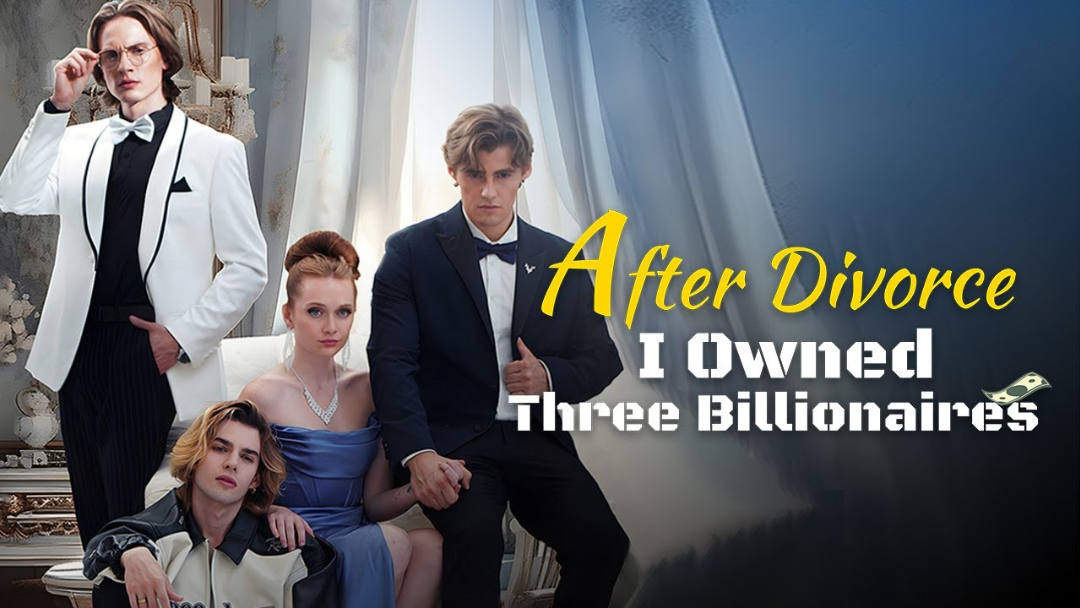
Think of this as your cozy, slightly nosy, popcorn-munching guide to a mini-series that serves business-class drama with a side of scheming. I’ll keep it friendly, a little cheeky, and — because you asked — strictly faithful to the story beats you provided. No invented twists. Just a deeper, honest look at what the series is, what it’s doing, and who will love it.
Grace, heiress to the Charlton Group, marries a fraud — Declan — under an alias after being rescued by an unknown savior. She quietly leverages her influence to build Declan’s empire, only to be betrayed when he divorces her to chase a more “useful” marriage. When Declan learns Grace is the Charlton heiress, regret follows... but Grace now has three very different billionaires — Aaron (the mystery rescuer), Liam, and Nicolas — all competing for her. Having been burned, she sets tests and challenges for each suitor rather than rushing into another marriage.
Light-melodrama with glossy, high-stakes trimmings. This is boutique romance meets corporate intrigue: more velvet cake than kale salad. It’s designed to indulge you — if you enjoy swoony billionaires, social chess, and a protagonist who slowly flips the script, this is prime mini-series material.
The core structure rests on a few strong pivots:
● Inciting incident: Grace’s rescue and the mistaken identity that follows.
● Complication: Gratitude-marriage to Declan under an assumed name while she quietly engineers his successes.
● Betrayal & revelation: Declan’s divorce and attempt to remarry for advantage; discovery of Grace’s true identity.
● Power shift: Declan’s regret collides with Grace’s newfound agency and three rival suitors arrive, turning the story into a game of wills.
This progression keeps the series moving: it starts with mystery and obligation, slides into betrayal and payoff, and then settles into a multi-way emotional duel. The writers trade subtlety for momentum — not a crime here, just the show’s stylistic choice.
(Only using the names and roles you supplied; focusing on motivations, relationships, and narrative function.)
Grace — the quietly powerful heir
She begins in the role of grateful beneficiary (marrying to repay a perceived debt) and slowly becomes the architect of her own terms. Her arc is about reclaiming identity: from anonymous wife under an alias to revealed heiress who controls how — and whether — she’ll engage with love and power again. Her choices read as deliberate and tactical rather than purely reactive, which makes her satisfying to watch.
Declan — the opportunist who learns too late
A classic scoundrel archetype with human sting: he uses charm and ambition to climb, then immediately treats relationships as transactional. His rapid pivot from grateful husband to strategic divorcee exposes his moral shortfall, and his later remorse creates deliciously awkward dramatic moments. He’s not there for redemption so much as to illuminate Grace’s growth.
Aaron — the mysterious rescuer
The unseen rescuer turned romantic interest fuels the “who saved me?” thread. Aaron functions as a moral contrast to Declan: presumably sincere, present as a protector rather than an opportunist. He embodies the romantic mystery and the possibility of a clean, honest relationship for Grace.
Liam & Nicolas — the other billionaires
They widen the love triangle into a tasteful buffet of suitors. Each presumably represents a different route Grace could take: stability, passion, strategic alliance — the story uses them to explore which combination of wealth, ethics, and personality matters most to her.
Fiona — the catalyst
Fiona’s presence (as Declan’s post-divorce target) functions as a plot engine: she highlights Declan’s opportunism and forces Grace to reckon with betrayal and public humiliation. She’s the narrative wedge that accelerates the central conflict.
● Identity vs. performance: Grace’s alias marriage highlights how social roles can mask truth. The reveal forces both social and personal reckonings.
● Wealth as leverage: Money isn’t only about comfort — it’s currency for opportunity, influence, and social mobility. The series interrogates how people try to buy access to power (and how power rewires relationships).
● Agency after betrayal: Rather than a typical revenge spiral, Grace’s response is strategic — she chooses tests and challenges rather than immediate heartbreak or capitulation. That restraint keeps the tone more clever than vindictive.
● Love vs. utility: The show constantly asks whether relationships are about affection or advantage — and whether the two can coexist.
Mini-series economies prefer momentum over meandering introspection. Expect brisk beats: set-up, betrayal, revelation, and the long game with the three suitors. This is ideal for bingeing — episodes likely end on hooks rather than quiet reflective beats. If you love narrative velocity, this will feel propulsive; if you prefer slow unearthing of interiority, some scenes will feel compressed.
Without naming actors or criticizing performances, here’s what this kind of short drama typically leans on:
● Stylised sets & wardrobe: Luxury branding is practically a character; attention to offices, penthouses and gala aesthetics will sell the billionaire fantasy.
● Editing that favors drama: Tight cuts on confrontations, lingering close-ups during emotional reveals.
● Soundtrack cues: Expect music to punctuate power shifts — swelling strings for reveals, quieter piano for introspective moments.
● Binge-friendly watchers: Compact episodes and steady hooks — perfect for a one-evening treat.
● Fans of romantic melodrama: If you enjoy morally fraught relationships and power dynamics, this will scratch that itch.
● Viewers who like a strong heroine: Grace’s shift from passive to strategic is the emotional spine; watching her set the terms is satisfying.
● Plausibility gaps: Some plot conveniences (marriage under an alias, the speed of Declan’s betrayals/regrets) require suspension of disbelief.
● Surface over depth: The three-suitor setup is fun for variety, but emotional depth for all sides may be limited by episode constraints.
● Moral ambiguity: If you prefer clear moral lines and thorough redemption arcs, the show’s pragmatic maneuvers might frustrate you.
This is comfort-drama: great for rewatch when you want familiar stakes and glossy tension. Its appeal is strongest on rewatch for fashion, lines, and the “who will win Grace’s heart?” game — less so for granular character psychology.
● Treat it as a one-sitting dessert: don’t overanalyze every plot convenience.
● Watch with friends who enjoy gossip-worthy drama — there will be moments tailor-made for live commentary.
● Keep note of Grace’s small wins: they’re the real reward.
I won’t invent titles or plots here — instead, look for mini-series that combine:
1. A wealthy/corporate setting,
2. Marriage or relational contracts as a central device, and
3. A protagonist who shifts from passive to strategic.
Search MiniShort’s catalogue or your preferred short-drama source for tags like: billionaire romance, counterattack, Sweet Love and female lead/ revenge/.
I haven’t added or fabricated availability details. For legit viewing: check MiniShort’s official site or app, and the usual licensed short-drama platforms in your region. Avoid unofficial uploads — always aim for the licensed stream to support creators.
Final verdict (one-line)
A glossy, binge-friendly mini-series that rewards anyone who wants smart-ass indulgence and a heroine who plays the long game — bring the popcorn, leave the realism checklist at the door.




